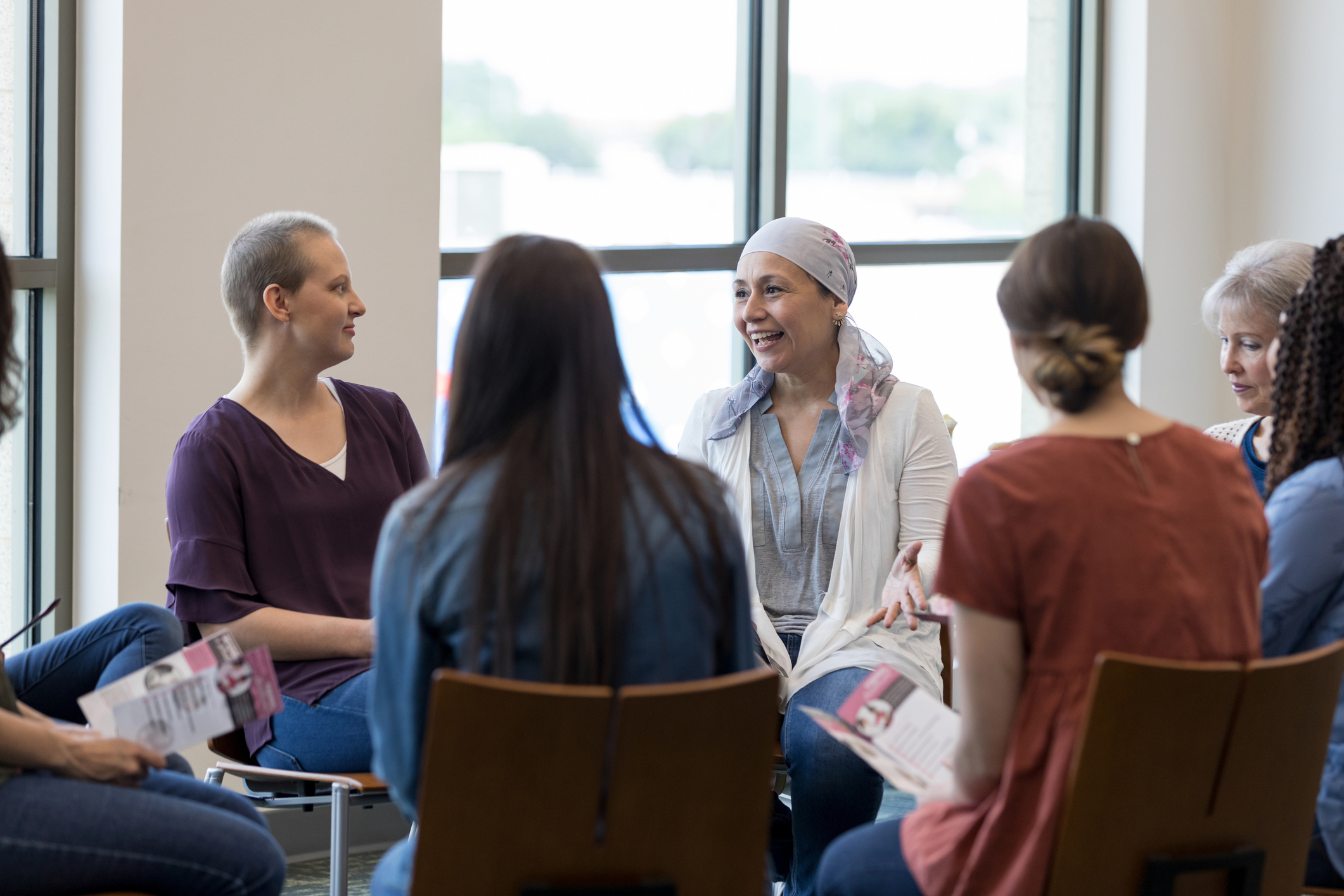Explore the unique challenges and essential screening strategies for individuals with dense breast...
Read More
Receiving a cancer diagnosis and accepting your treatment options can feel profoundly devastating. You may experience isolation, fear, sadness, anger or a sense of loss. Cancer support groups help people cope with all aspects of the cancer journey, from diagnosis to remission. Here are five ways cancer support groups can help you.

Cancer support groups offer a safe environment to connect with others who share your experience, reminding you that you are not alone. “Joining a support group gives you access to a community who can relate to your situation,” said Nandini Kulkarni, M.D., a surgical oncologist and Medical Director of Surgical Oncology for Inspira Health. “These groups consist of individuals who may be grappling with the same daily challenges, and they may have coping strategies that can help one another.” Knowing that you don’t have to face your cancer journey on your own can help empower you to live your life with a sense of hope.
Cancer support groups address your social, emotional and educational needs through all phases of care. Licensed mental health professionals with experience in oncology support lead these support groups. They provide resources and support to help you navigate this difficult time. Discussion topics involve everything from the physical symptoms of treatment to dealing with anxiety, isolation and concerns about the future.
Some research shows that joining a support group improves the quality of life and chances of survival for people facing a cancer diagnosis. Support groups can reduce stress, anxiety, depression, fatigue and emotional distress. They can also improve your mood, ability to cope with stress, self-image and sense of empowerment.
Support groups are beneficial to cancer survivors as well. “Support during recovery is just as important because a new set of obstacles may emerge at this time,” said Dr. Kulkarni. “Post-treatment care comes with unique challenges, including possible fertility problems, insurance or financial issues and reentering the workforce.” Post-treatment support can connect you with resources and other survivors at the same stage of recovery as you. Leaning on these people can help you adjust to your new normal.
Cancer support groups offer comfort to family members, caregivers and friends who are coping with the diagnosis of a loved one. “Caregiver support groups offer a space to share experiences and receive support for anxiety and other difficult emotions,” said Dr. Kulkarni. “This guidance helps family members navigate the treatment process.”
At Inspira, we offer a wide range of cancer support groups in partnership with Cancer Support Community New Jersey (CSCNJ) at Gilda’s Club. Led by licensed mental health professionals with experience in oncology guidance, these groups are free for all participants.
Support groups currently take place virtually and in person. For more information or to register, please email cancersupportcommunity@ihn.org.
Inspira Health is a high reliability organization (HRO), which means safety is the top priority for patients and staff. To make an appointment, call 1-800-INSPIRA.

Explore the unique challenges and essential screening strategies for individuals with dense breast...
Read More
Join us as we look back on a heartwarming day of love, laughter and resilience. Our annual Cancer...
Read More
For 81-year-old artist Bonnie Flanagan, an overall assessment of her health, which included a self...
Read More